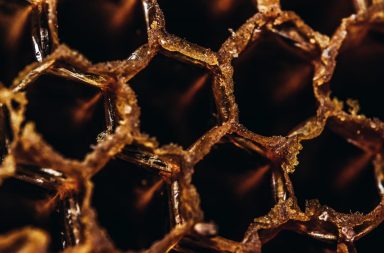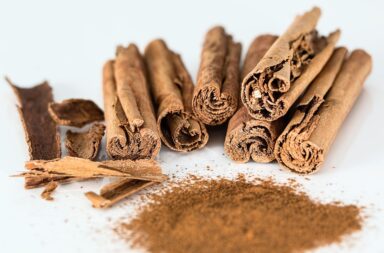Honey is considered to have medicinal properties across many cultures. From Ayurvedic treatments in India to Chinese medicines in the far east. Greek Gods held their much coveted amber coloured ‘Ambrosia’, a food said to give eternal life to the bearer. It is now suspected as honey they were referring to. Ancient Egyptians were even embalmed or buried with pots of it. Today, we spread it on toast or pour it in tea. It is also known for its healing properties, antioxidants and healthy sugars. But is there more to it? Is Honey good for gallstones?
What Are Gallstones?

Photo by Jannes Jacobs on Unsplash
Gallstones form within the Gallbladder in poor digestive circumstances. The gallbladder is the organ that sits directly under the liver. It is responsible for storing the bile that is secreted by the liver. Bile is extremely useful in breaking down and absorbing the fats we received through our diet. When partially digested food from the stomach reaches the duodenum (smaller/lower intestine), the biliary ducts release enough bile to aid the breakdown of these fats.
Gallstones can occur when the bile stored in the gallbladder becomes thick. This sludgy bile blocks the biliary ducts, often crystallising and forming gallstones. Many factors cause bile to thicken, but the culprit is largely poor diet. A diet rich in processed foods, refined sugar and large amounts of fats can cause strain on the digestive system, leading to a sluggish liver and gallbladder.
Symptoms of incoming gallbladder issues or gallstones include: sharp pain in the upper right hand of the abdomen, bloating, nausea, an excess of gas, and even diarrhoea and vomiting. A lightening of the stool to a grey or even beige colour may also occur.
So, how is honey good for gallstones? First we should define what ‘good’ means.
Honey is ‘Good’ For Gallstones?
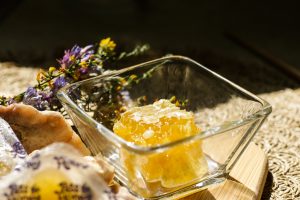
Photo by Pass the Honey on Unsplash
There are a number of Ayurvedic (natural) remedies for treating gallstones, a few of these include honey. Whilst popular, remedies such as these are not always confirmed by the FDA or other administrations. The benefits of unrefined sugars and organic products within a healthy diet, however, have always been supported. So how can this ‘nectar’ be good for combating gallstones?
A negative factor of poor diet is increased levels of cholesterol within the body. large amounts of fat combined with processed sugars and carbohydrates serve to increase cholesterol. When abnormally high levels are present, the liver secretes larger amounts within bile. Once inside the gallbladder, crystallisation occurs, causing cholesterol gallstones. Introducing of honey and almonds into a nutrient rich diet has been linked to a reduction of cholesterol levels in the body.
Meaning that honey can both be used as a preventative, and a treatment!
We are already seeing just how good honey is for gallstones; stay tuned for some beneficial recipes below. But what is it that makes honey so good for you?
Good Gut Health
One really interesting thing about honey is its richness in antioxidants, and ability to boost the immune system. Honey is full of phytonutrients, giving its antioxidant nature and ability to fight bad bacteria and fungal infections. Raw honey also nourishes the good bacteria in your micro-biome (the eco system of your digestive system), encouraging growth of the microbiota.
You may well have heard of Manuka honey, due to its so-called medicinal properties. Many naturopaths will extol the benefits to their clients. It has been prescribed as both a skincare regime and can be taken for gut health. We will check back in on Manuka honey later!
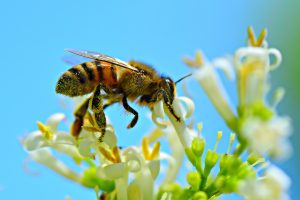
Image by Mabel Amber from Pixabay
Good Sugars
The best-kept secret as to why Honey is so good for gallstones is within its molecular structure. Regular raw and organic honey is generally around 40% fructose, 30% glucose. It also contains traces of essential nutrients such as potassium and magnesium. When compared with refined sugar, Honey is metabolised slower by the body when compared with refined sugar, reducing the risk of insulin spikes.
But how is property of honey good for gallstones?
Increased production of insulin is linked to an increase in stress levels. When in a state of stress, the body shuts down ‘non-essential’ bodily functions. Meaning the digestive system lays dormant. This often triggers a sluggish liver, effecting the gallbladder. The result is a thickening of the bile, blocking the bilial ducts and preventing release.
Lowering your intake of refined sugars in favour of naturally occurring sugars found in honey reduces the risk of digestive issues.
Good Acids
Honey is generally an acidic, rather than alkaline, food. Whilst it is generally beneficial including lots of alkaline foods to maintain good gut health, acidic foods are beneficial in small quantities.
As an acidic food, honey holds very little water. It is, however, also very good at attracting and holding onto water when it finds it. This means that even something so simple as a cup of herbal tea with 1 tsp of honey could help to increase hydration.
One of the preventative measures you can take to avoid gallstones is to drink plenty of water (roughly 8 glasses or more) per a day. Better hydration decreases the chance of gallstones forming as the liver is regularly flushed out.
Drinking 1 Litre of Water on Empty Stomach (9 Benefits You’ve Been Missing Out On)
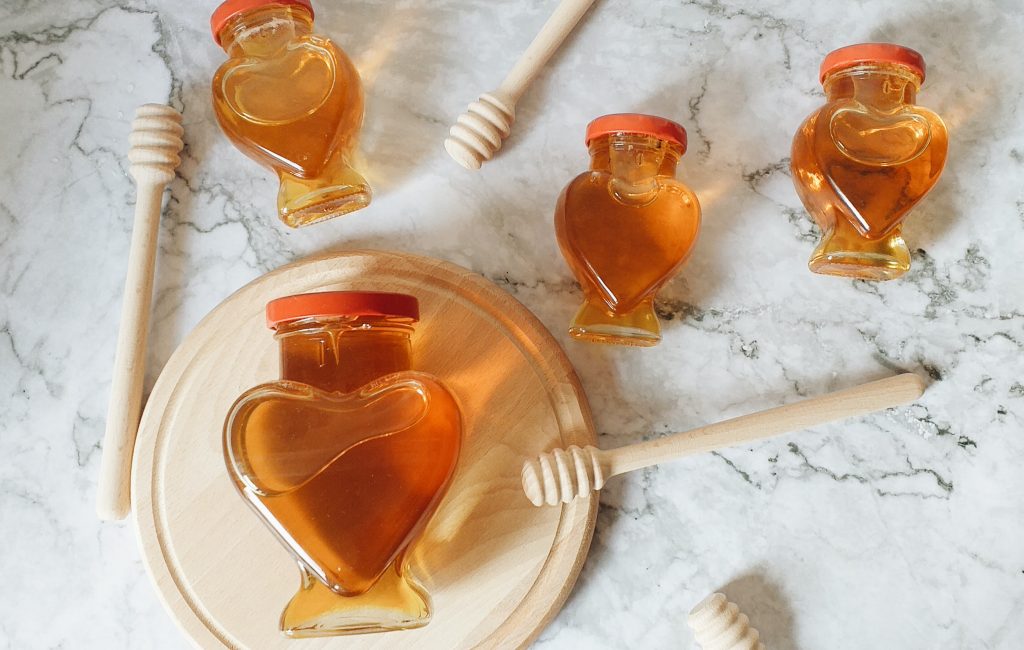
Photo by Maja Jugovic on Unsplash
Which Honey is Good for Gallstones?
Bees collect pollen and nectar from various different flowering plants, so there are many different types of honey. Bee farms generally produce honey from only one species of flowering plant, giving differing benefits within each type. With so many to choose from , it can be a little tricky to know exactly what you are looking for when investing in this nutrient rich and healthy sugar.
The good news is as long as it is raw, organic, naturally produced honey there will always be benefits. Stay away from the processed stuff, and honey will always keep its title as a ‘functional food’. Replace your daily dose of sugar with honey at breakfast or in a hot beverage and it could work wonders on your health! Honey isn’t only good for gallstones. It is an all-round health booster.
Having said that, there are lots anti-oxidant rich forms of honey, which are good for gallstones. We have handpicked just a few for you:
Acacia Honey – View on Amazon
This light and sweet staple of the table has high fructose content. This helps keep the honey fresher for longer without crystals forming, which can affect the compound and taste. Not only is it great for the immune system, but its anti-inflammatory properties could also be a helpful factor in maintaining a well functioning liver and gallbladder. It has also been studied for its neurological effects. Many scientists have noted the link between the inclusion of Acacia honey in the diet and the reduced risk of Alzheimer’s disease. Added to this, the low sucrose content makes it great for diabetics!
Buckwheat Honey – View on Amazon
Another honey useful for diabetics, but this is just for starters. As an aid to preventing gallstones, it has also been shown to reduce cholesterol levels which we know can increase your chances of gallbladder issues. It has also long been used to soothe the common cold and sore throats, as well as aiding a reduction of mutations in DNA.
Eucalyptus Honey – View on Amazon
As may be expected, this darker in colour and fuller in taste honey has a slightly menthol quality. Some find its taste and smell too overpowering, so it is not for everyone! Its antioxidant and antimicrobial qualities, however, are excellent for fending off seasonal illnesses and respiratory issues. It has also been linked to helping ease diarrhoea, a symptom of gallbladder problems.
Jarrah Honey – View on Amazon
For its sheer amount of prebiotics and pro-biotics, this one is a champion. Prebiotics encourage the growth of good bacteria in your digestive system, meaning your microbiome stays healthy. A healthy microbiome encourages better digestion and stimulates the production of bile, helping the gallbladder and liver stay lively! Its low glucose, high fructose compounds aid the slow release of sugars, preventing insulin spikes. This has also been shown to aid endurance training, and burn fat while you sleep!
The high levels of butyric acid within jarrah honey have also been linked with a decreased risk of colon cancer. A true champion indeed.
Manuka Honey – View on Amazon
Last but definitely not least, we are back with our friend Manuka. Higher quantities of antioxidant phenolic acids within its structure aid anti-inflammatories. Absorbed quickly through the intestinal walls, it soothes the muscles of the digestive system, and fights bad bacteria. This well-known honey is good for gallstones as it is antimicrobial. It has been studied for its ability to fight the occurrence of biofilms, which are a type of micro-organism that can grow on gallstones. These are very difficult to treat, and often the only course of treatment is to remove the gallbladder completely. To learn more below, click the link below.
Everything about Manuka Honey side effects and benefits
Honey has many special qualities it is true. Many have been found to soothe allergies with regular intake. Assuming you are not allergic to honey itself that is! As food allergies have also been linked to causes of gallstones, this is just another embellishment on an already highly decorated lapel.
There are many ways you can include honey into your daily diet. This can be super useful for fending off gallbladder issues. But for some quick home remedies that could help the onset of gallstones and related pain, we have a couple of suggestions just for you.
Natural Remedies with Honey for Gallstones
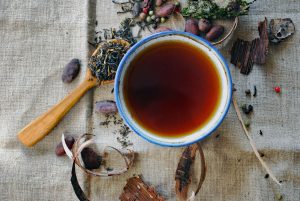
Photo by Drew Jemmett on Unsplash
When experiencing severe and persistent discomfort, it is always best to seek the help of a medical professional. These remedies can be used alongside medical assistance and are a great way of increasing overall gut health.
Using a decent raw and organic honey in one of these natural remedies can serve to reduce the risk of gallstones. It can also aid the passing of gallstones alongside drinking plenty of water daily.
As always, prevention is better than the cure!
Hot Honey & Pear Juice
- 1/2 glass hot water
- ½ glass pear juice
- 2 tbsp honey.
Combine all ingredients in a glass, stirring well to dissolve the honey. Take this 3 times a day until the discomfort subsides.
Liver & gallbladder flush
- ¼ tsp turmeric
- ¼ tsp powdered cumin
- ½ tsp Manuka honey in a small glass.
Combine in a glass and fill with boiling water, stirring vigorously to mix together. Enjoy this beverage warm up to 3 times daily.
What do we Want? Honey!
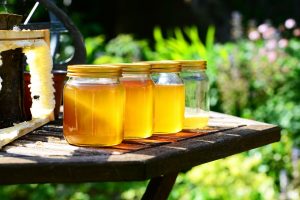
Image by PollyDot from Pixabay
When do we want it? Every damn day!
It is settled, then. Honey is good for gallstones. As part of a healthy diet full of natural, unprocessed foods, honey can go along way. As with all kinds of sugar, too much of a good thing can cause negative effects. But a well cared for digestive system healthy supports a healthy liver and gallbladder.
So many people these days, doctors included, believe the gallbladder to be an unnecessary organ. Removing the gallbladder can, however, have a detrimental effect on the digestive system of some patients. These after effects, including constipation and nausea, can go on for years after the surgery. Meaning that so often removing the gallbladder does not actually fix the original problem or symptoms.
Including alkaline foods such as raw or steamed vegetables in your diet, together with small amounts of proteins and good fats, can be combined with acidic foods for a well curated microbiome. The acidity of honey, as well as its antioxidant qualities and healing properties make it a perfect addition. Overall, gut health is maintained with good diet, regular exercise and plenty of water. Gallstones are never pleasant, often very painful. Not only is it a great defence, honey is also a fantastic remedy!
Is Manuka Honey Acid or Alkaline?
The ancient Greeks were onto something. There can almost be no doubt, Ambrosia is the honey we have come to know and love today. Now is the time to become well acquainted with it, and perhaps come to feel as immortal as the Gods.





